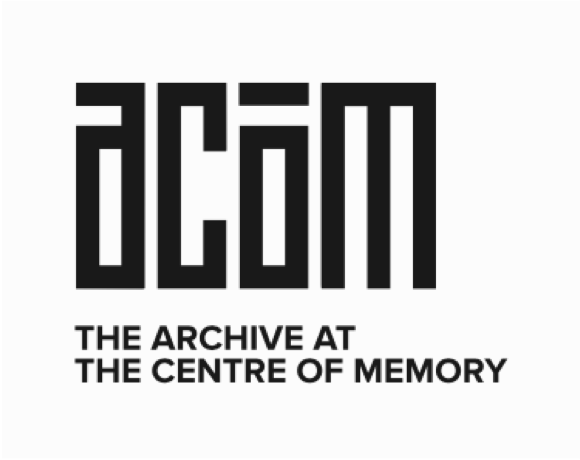The Nelson Mandela Foundation aims to provide all members of the public with high levels of customer service. With your assistance and feedback, we seek to continuously improve our service to the public by responding to the changing needs of our users; by providing access to the Foundation’s collections and services; and by safeguarding the legacy of Nelson Mandela for future generations.
To achieve this, we will:
- Select and preserve records relating to the life and times of Nelson Mandela as outlined in our Collection Development Policy.
- Actively promote and encourage the use of our collections by providing equal and unbiased access to the sources and to information about them through all available means.
- Work in partnership with individuals and organisations to stimulate interest in archives and memory work.
1. Acquisition and preservation
- The Foundation does not actively collect materials, nor will it compete with other collecting institutions. Instead, materials are acquired when they do not have an obvious alternative ‘home’ and where they promise to add value to the Foundation’s core work
- Collections are preserved, processed and made available to the highest professional standards. In particular:
- Via our online Archive
2. Access to information
Access to information is available to all, free of charge.
Please note that we charge for some services, such as photocopying and the copying of video clips.
We will help you understand the range of our holdings and assist you to identify whether we hold material relevant to your enquiry.
We will:
- Receive and respond to enquiries within 10 working days, or let you know if there will be a delay
- Make available guides and indexes to our holdings
- Continue to develop our range of online sources
We provide courteous trained staff who will explain our services and help you to plan your search.
- Our replies to your enquiries will have a contact name, address and telephone number;
Research into sources we hold can be done by:
- Utilising our range of online research resources
- Contacting our Archive and Research team who will respond to short, specific enquiries for a maximum of 10 minutes;
- Visiting the Centre of Memory and carrying out research in person, free of charge;
- Alternatively, we can supply a list of independent researchers.
While we are not able to do all your research for you, we will provide advice, guidance and assistance. If we do not hold the relevant documents we will do our best to point you in the right direction.
How you can help
- Give us accurate and concise information relevant to your enquiry
- First check our research resources to see if they answer your question
- Please treat all members of staff with courtesy
3. Visiting us
We provide a Reading Room that is available during standard business hours.
How you can help
Contact us in advance of any visit and ensure you complete the research registration form, and make an appointment before visiting.
We try to make our Reading Room accessible to all.
We provide:
- Parking for disabled users
- Access all on one level
The Reading Room has suitable conditions and facilities for viewing original archival material and secondary sources. Its use is subject to some rules and guidelines.
We provide:
- Tables for viewing original and printed material
- Free internet access
- Secure lockers for items that cannot be taken into the reading room
Our Archive and Research staff will:
- Provide advice and guidance in how to use the online Archive
- Provide assistance in identifying relevant sources;
- Help you order your documents and give guidance on handling techniques;
- Retrieve the original documents you request from our strongrooms and bring them to the Reading Room
In most cases your order of documents will be in the Reading Room within 15 minutes of you placing your order.
How you can help
Talk to us in advance to check that the documents you require will be available.
4. Access restrictions
We will inform you of any access restrictions on records. We will note these in the catalogues where possible.
Please talk to us if you require access to any restricted records.
5. Copies
We undertake to provide copies of documents, when requested subject to any legal, physical or copyright restrictions.
If an item cannot be photocopied or scanned we will advise you of other possible methods of copying.
How you can help
Please talk to us about your requirements.
6. Outreach
We promote the Centre of Memory, Archive and Foundation’s work and raise awareness of the life and times of Nelson Mandela by:
- Providing guided tours through the permanent exhibition
- Mounting exhibitions in our temporary exhibition space
- Touring our series of mobile exhibitions
- Maintaining and updating our range of online research resources
- Partnering with like-minded organisations and companies.
7. Feedback
We encourage you to comment on our standards of service verbally, in writing – by letter, email or via the contact us forms on our website.
If things go wrong we will acknowledge the problem, make sure we have understood and apologise if we are in the wrong.
If you are unhappy with our work or we have not met our standards, please:
Talk to a member of staff when the problem arises. Staff will handle complaints and comments as quickly and effectively as possible; alternatively, use our contact us form on our website.
We will respond within 5 working days.
We try to respond to comments or complaints on an informal basis whenever possible.
We may not be able to do what you want (for legal reasons, for preservation reasons, or because our resources will not allow it) but we will listen to you and explain the reasons for our actions.
How to contact us
There are a number of ways in which we can be contacted.
In person:
107 Central Street
Houghton
2198
South Africa
Write to:
Razia Saleh
Head: Archive and Research
Private Bag X70000
Houghton
2041
South Africa
Telephone: +27 (0)11 547 5600

